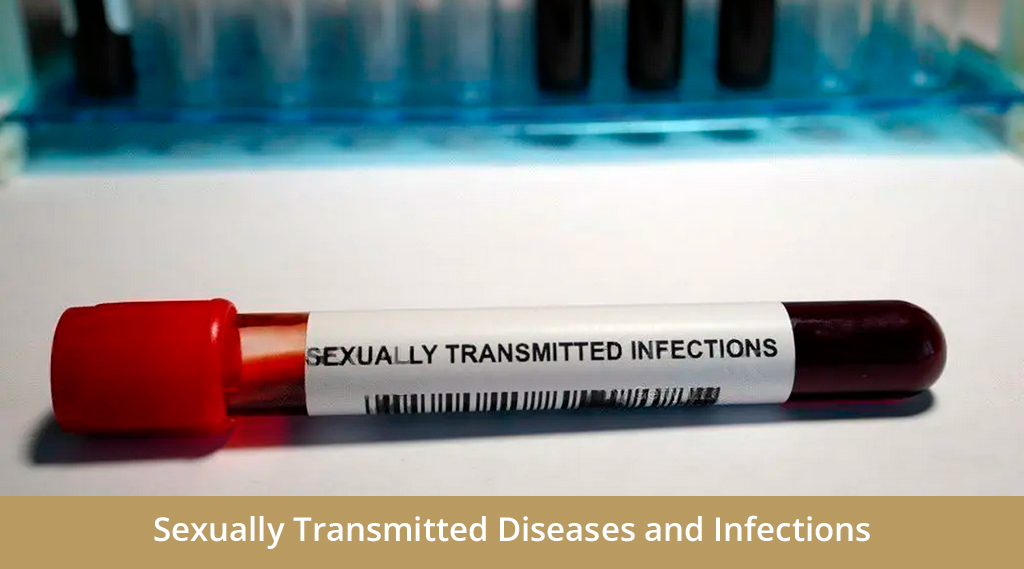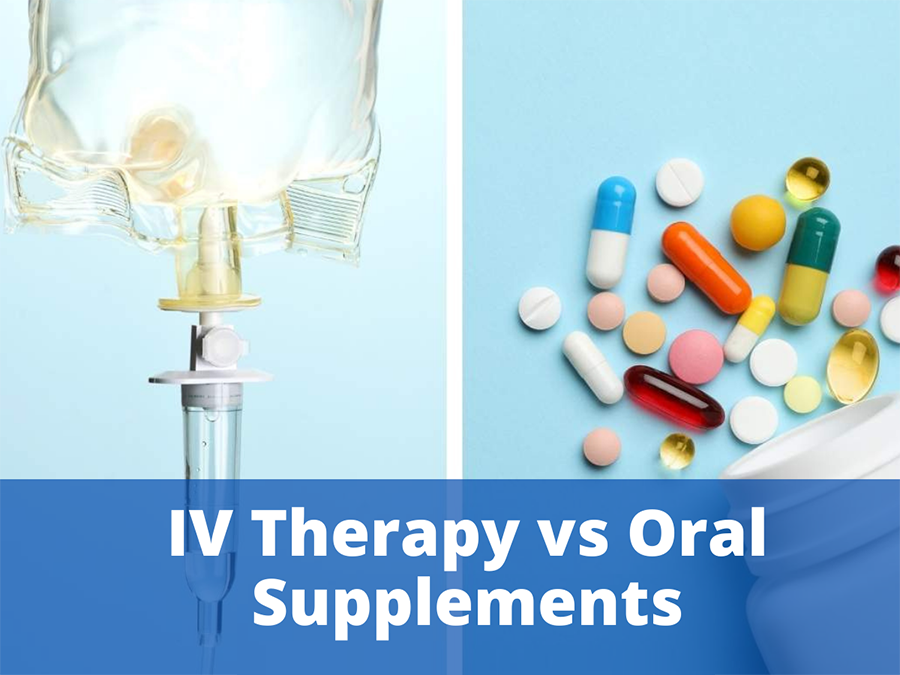
What is STD/STI
Infections spread from one person to another by sexual contact are known as sexually transmitted diseases (STDs) or sexually transmitted infections (STIs). Usually, there is vaginal, oral, or anal sex involved. However, occasionally they can be transmitted by close physical contact. Additionally, several STDs, including HPV and herpes, are transmitted through skin-to-skin contact.
There are more than 20 types of STDs, including:
- Chlamydia
- Genital herpes
- Gonorrhea
- HIV/AIDS
- HPV
- Pubic lice
- Syphilis
- Trichomoniasis
What causes sexually transmitted diseases (STDs)?
Sexually transmitted diseases (STDs) are caused by various pathogens, including bacteria, viruses, and parasites, which are transmitted through sexual contact. The most common cause of bacterial STDs is Chlamydia trachomatis, which causes chlamydia, and Neisseria gonorrhoeae, responsible for gonorrhea. These bacterial infections can infect the reproductive organs and other body parts. Viruses also cause several STDs, such as the herpes simplex virus (HSV), which leads to genital herpes, and the human immunodeficiency virus (HIV), which causes AIDS.
The human papillomavirus (HPV) is another virus that can cause genital warts and is linked to various cancers. Parasitic infections, like trichomoniasis, are caused by protozoa and spread through sexual contact, often leading to discomfort and inflammation. These pathogens are typically spread through vaginal, anal, or oral sex with an infected person.
In some cases, STDs can also be transmitted through non-sexual routes, such as sharing needles or from mother to child during childbirth or breastfeeding.
Who is affected by sexually transmitted diseases (STDs)?
Most STDs affect both sexes, although, for many, women may experience more severe health issues. For instance, a pregnant woman with an STD might seriously harm the unborn child’s health.
Symptoms of sexually transmitted diseases (STDs)?
There can be various STD symptoms, depending on the type of infection. Many STDs are asymptomatic in their early stages, meaning a person may not experience any noticeable symptoms. However, common signs of STDs may include unusual discharge from the genitals, sores, lumps, or bumps around the genital area, pain during intercourse or urination, itching, and a persistent rash. Some STDs may cause burning sensations or a frequent urge to urinate. In cases of viral STDs, like herpes or HIV, individuals may experience flu-like symptoms initially.
How are sexually transmitted diseases (STDs) diagnosed?
Here’s an overview of the diagnostic process:
- Physical Examination: A doctor may inspect the genital, anal, and oral areas for signs of sores, warts, or other visible symptoms.
- Urine Test: A urine sample is commonly collected to detect bacteria or viruses responsible for infections like chlamydia.
- Blood Tests: Blood samples are tested for infections like HIV, syphilis, and herpes. HIV tests detect antibodies or viral RNA, while syphilis is diagnosed by blood tests for antibodies.
- Swab Samples: A swab of genital, vaginal, anal, or throat tissue may be taken to test for infections such as herpes, gonorrhea, or HPV.
- Pap Smear or HPV Test: Women may undergo a pap smear to detect abnormal cells or HPV, which can lead to cervical cancer.
What are the treatments for sexually transmitted diseases (STDs)?
Antibiotics can treat STDs caused by bacteria or parasites. There is no cure for STDs caused by viruses, but medicines can often help with the symptoms and lower your risk of spreading the infection.
Correct usage of latex condoms greatly reduces but does not eliminate the risk of catching or spreading STDs. The most reliable way to avoid infection is not to have anal, vaginal, or oral sex.
There are also vaccines to prevent HPV and hepatitis B.
Can sexually transmit diseases (STDs) be prevented?
Correct usage of latex condoms greatly reduces but does not eliminate the risk of catching or spreading STDs. If your partner is allergic to latex, you can use polyurethane condoms. The most reliable way to avoid infection is not to have anal, vaginal, or oral sex.
Risk factor of STD & STI
Several factors increase the risk of acquiring or transmitting STDs and STIs. These include:
- Unprotected Sex: Engaging in vaginal, anal, or oral sex without condoms increases the risk of transmitting or contracting STDs.
- Multiple Sexual Partners: Having multiple sexual partners or a partner with multiple partners can increase the likelihood of encountering someone with an STD.
- Inconsistent Condom Use: Even occasional unprotected sex raises the risk of contracting infections.
- Previous STDs: If you’ve had an STD before, you may be at higher risk of contracting another one due to the weakened immune system and tissue damage.
- Age: Young people, particularly those aged 15-24, have a higher risk due to a combination of biological factors, including the cervix’s vulnerability in young women and riskier sexual behaviors.
- Drug Use: Sharing needles or engaging in drug use can increase exposure to infections like HIV.
Complications of STD
If left untreated, sexually transmitted diseases (STDs) can lead to serious health complications. Some STDs, such as chlamydia and gonorrhea, can cause infertility in both men and women by leading to pelvic inflammatory disease (PID) in women and epididymitis in men. Human papillomavirus (HPV) infections can lead to cervical, anal, or throat cancer in the long term. Untreated syphilis can cause damage to internal organs, including the heart, brain, and nerves. In addition, HIV, if untreated, can progress to AIDS, severely weakening the immune system and making the individual more susceptible to opportunistic infections. In some cases, STDs can also cause complications during pregnancy, including premature birth, low birth weight, and transmission of the infection to the newborn.
What is the difference between STD and STI
The terms STD and STI are often used interchangeably but have distinct meanings:
- STD: A sexually transmitted disease refers to infections that have developed symptoms or disease as a result of the infection. For example, if an infection leads to the formation of sores, warts, or other visible symptoms, it is considered a disease.
- STI: A sexually transmitted infection refers to the presence of an infection that hasn’t yet caused noticeable symptoms or disease. Some people with STIs may not even know they have an infection, but they can still spread it to others.
When to see a doctor
See a doctor immediately if:
- You are sexually active and may have been exposed to an STI
- You have signs and symptoms of an STI
Make an appointment with a doctor:
- When you’re considering becoming sexually active or when you’re 21 — whichever comes first
- Before you start having sex with a new partner
What STDs are not curable?
While many STDs can be treated and cured, some viral infections are not curable, though they can be managed with medical treatment. Human Immunodeficiency Virus (HIV), which can lead to AIDS, is a lifelong infection that, although treatable, currently has no cure. Similarly, the herpes simplex virus (HSV), responsible for genital herpes, remains in the body for life, causing recurrent outbreaks. Human papillomavirus (HPV), which can lead to genital warts and certain cancers, is another infection that has no cure, though vaccines and treatments can reduce the risk of complications. Hepatitis B, a liver infection transmitted sexually, is also not curable, but antiviral medications can help manage the condition.
Conclusion
Sexually transmitted diseases (STDs) and infections (STIs) present significant health risks if left untreated. While many STDs can be diagnosed, treated, and cured, others can result in serious complications, including infertility, cancer, and chronic health issues.
Understanding the symptoms and risk factors is crucial for prevention and early intervention. Safe sexual practices, such as using condoms and getting regular screenings, are key to reducing the spread of STDs and maintaining sexual health.
It is important to seek medical advice if any symptoms arise or if you believe you may have been exposed to an infection, as early diagnosis and treatment are essential for protecting both individual and public health.
Recent Posts
-

Anti-Aging IV Drip Therapy Benefits and How It Works
Ageing is a natural biological process that affects every living organism over time. As humas, when we age, cellular repair slows down, hydration levels decrease, oxidative stress increases, and essential nutrient absorption becomes less efficient.
January 24, 2026 -

IV Therapy vs Oral Supplements: Which Is More Effective?
Many people take daily supplements because they feel like a part of their routine, but the body does not process every tablet the way anyone expects or believes it does. Some days, absorption can be steady; other days, it can't be guaranteed, for reasons that have little to do with the dose itself... Read more
January 21, 2026 -

Types of STD Tests: Blood, Urine, Swab and Rapid Tests Explained
STD testing is considered essential for early detection, accurate diagnosis, and effective treatment of sexually transmitted infections. Many STDs show little or no symptoms, making regular screening an important part of sexual health and wellbeing ... Read more
January 16, 2026 -

How Modern Labs Detect STDs: The Science Behind the Tests
Sexually transmitted infections can often stay silently in the body, sometimes creating subtle changes that leave a person uncertain about what is happening. Modern diagnostics and STD/ STI lab tests help bring clarity by studying tiny pathogens that the body is being exposed to long before it becomes an actual health risk.
January 06, 2026 -

Multivitamin IV Drip: How Beneficial Are They?
A Multivitamin IV Drip is a sterile infusion that combines nutrients such as vitamin C, B-complex vitamins, magnesium, and calcium in a balanced, hydrating solution. At Health Call, this popular treatment is used to support overall hydration ...
December 10, 2025




